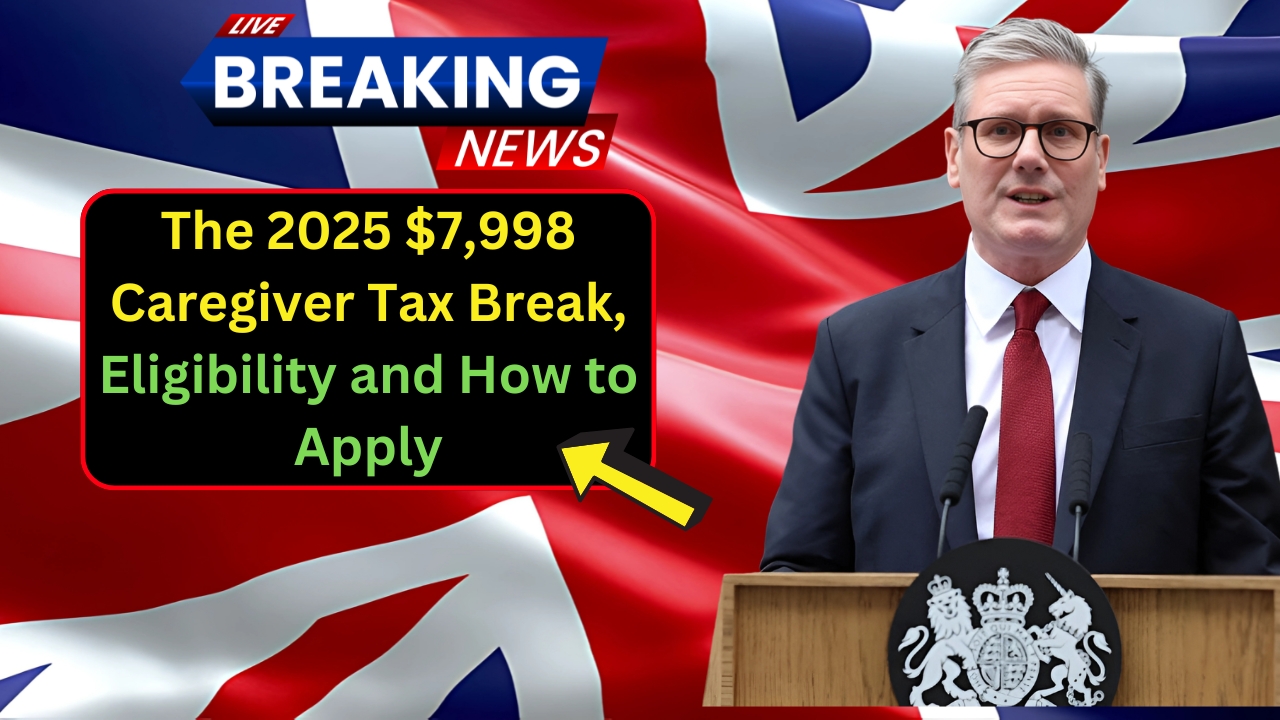2025 Caregiver Tax Benefits: Family caregivers across America shoulder enormous financial burdens while providing invaluable care to their loved ones. In 2025, several tax benefits are available to help ease these costs, including existing credits and deductions, plus a promising new proposed legislation that could provide significant relief.
Understanding Current Caregiver Tax Benefits in 2025
The Proposed Credit for Caring Act: A Game-Changer for Families
The most significant development for caregivers is the proposed Credit for Caring Act (H.R. 7165), which would provide up to $5,000 in nonrefundable tax credits for eligible family caregivers. With bipartisan support and endorsement from President Trump, this legislation has strong momentum heading into 2025.
The proposed credit would cover 30% of qualified long-term care expenses that exceed $2,000 in a taxable year. Eligible caregivers must have earned income exceeding $7,500 and pay expenses for providing care to a spouse or other dependent relative with long-term care needs.
Existing Tax Credits Available Now
Child and Dependent Care Credit
The Child and Dependent Care Credit allows you to claim up to 35% of qualifying expenses, depending on your adjusted gross income (AGI). For 2025, you can claim expenses up to $3,000 for one qualifying person and up to $6,000 for two or more.
Key Requirements:
- The person must have lived with you for at least six months during the tax year
- They must be physically or mentally incapable of caring for themselves
- You must pay for care while you work or look for work
Credit for Other Dependents
This nonrefundable credit provides up to $500 per qualifying dependent who doesn’t qualify for the Child Tax Credit. Perfect for elderly parents or disabled family members in your care.
Eligibility Requirements for Caregiver Tax Benefits
Who Qualifies as a Caregiver?
To qualify for most caregiver tax benefits, you must meet specific criteria:
- Income Requirements: For the proposed Credit for Caring Act, you must have earned income exceeding $7,500
- Care Relationship: The care recipient must be a spouse or dependent relative
- Care Needs: The care recipient must meet certain functional or cognitive limitations certified by a licensed healthcare practitioner
- Financial Support: You must provide more than half of their financial support
Dependent Qualification Standards
To claim someone as a dependent, they must be a U.S. citizen, national, or resident alien, and their gross income must be less than $5,050 for the calendar year. Additionally:
- You cannot be claimed as a dependent by another taxpayer
- If married, they cannot file a joint return (except to claim refunds)
- You must provide more than half of their support
How to Apply for Caregiver Tax Benefits
Step-by-Step Application Process
1. Gather Required Documentation
- Medical certification of care recipient’s condition
- Receipts for all care-related expenses
- Caregiver’s Taxpayer Identification Number (TIN)
- Income verification documents
2. Complete Necessary Forms
- Form 2441: Child and Dependent Care Expenses
- Schedule A: Itemized deductions for medical expenses
- Form 1040: Main tax return
3. Calculate Eligible Expenses
Track expenses including:
- Home care aide services
- Adult day care programs
- Medical equipment and supplies
- Home modifications for accessibility
- Transportation to medical appointments
Medical Expense Deductions
Caregivers can deduct all medical expenses that exceed 7.5% of their adjusted gross income (AGI). This includes expenses paid for dependents, even if they exceed the income limit for dependency status in certain circumstances.
Financial Impact and Benefits
Current Caregiver Spending Patterns
| Expense Category | Average Annual Cost | Potential Tax Savings |
|---|---|---|
| General Caregiving Costs | $7,200 | Up to $2,520 |
| Veteran Caregiving | $11,500 | Up to $4,025 |
| Dementia Caregiving | $12,388 | Up to $4,336 |
| Home Modifications | $3,000-15,000 | 30% credit potential |
Economic Impact of Family Caregiving
Family caregivers provide $600 billion in unpaid care annually, saving taxpayers billions by helping delay or prevent expensive nursing home care and hospital stays. In 2024, Alzheimer’s caregivers alone provided 19.2 billion hours of unpaid care, valued at nearly $384 billion.
State-Level Caregiver Tax Benefits
Nebraska’s Pioneering Approach
Nebraska has established tax credits for individuals providing care to family members with additional needs through the Caregiver Tax Credit Act, signed into law in April 2024. This state-level initiative demonstrates growing recognition of caregiver contributions.
Planning and Optimization Strategies
Maximizing Your Tax Benefits
- Keep Detailed Records: Maintain receipts for all care-related expenses throughout the year
- Understand Income Thresholds: The Credit for Other Dependents phases out when modified AGI exceeds $200,000 ($400,000 for joint filers)
- Consider Timing: Plan major care expenses around tax year boundaries
- Explore Multiple Benefits: You may qualify for several credits simultaneously
Professional Assistance
Given the complexity of caregiver tax situations, consider working with a tax professional who understands caregiving deductions and credits. They can help ensure you’re claiming all available benefits while staying compliant with IRS requirements.
Future Outlook for Caregiver Tax Relief
Congressional Action Expected
Key provisions of the Republicans’ Tax Cuts and Jobs Act of 2017 are set to expire at the end of 2025, making a tax debate in Congress almost certain. This creates an opportunity for the Credit for Caring Act to be included in broader tax legislation.
The timing appears favorable, with President Trump’s endorsement and inclusion of caregiver support in the 2024 Republican Party Platform, combined with strong bipartisan support in both chambers of Congress.
Frequently Asked Questions
Q: Can I claim tax benefits if I’m caring for a parent who doesn’t live with me?
A: Yes, you can maintain a home for your parent that serves as their main residence, even if they don’t live with you.
Q: What if my family member has too much income to qualify as a dependent?
A: You may still be eligible for the Child and Dependent Care Credit if they meet all dependency requirements except having income over $5,050.
Q: Are insurance payments for caregiving taxable?
A: No, if you’re not engaged in the trade or business of providing care services, insurance payments for caring for your spouse are generally not subject to self-employment tax.

